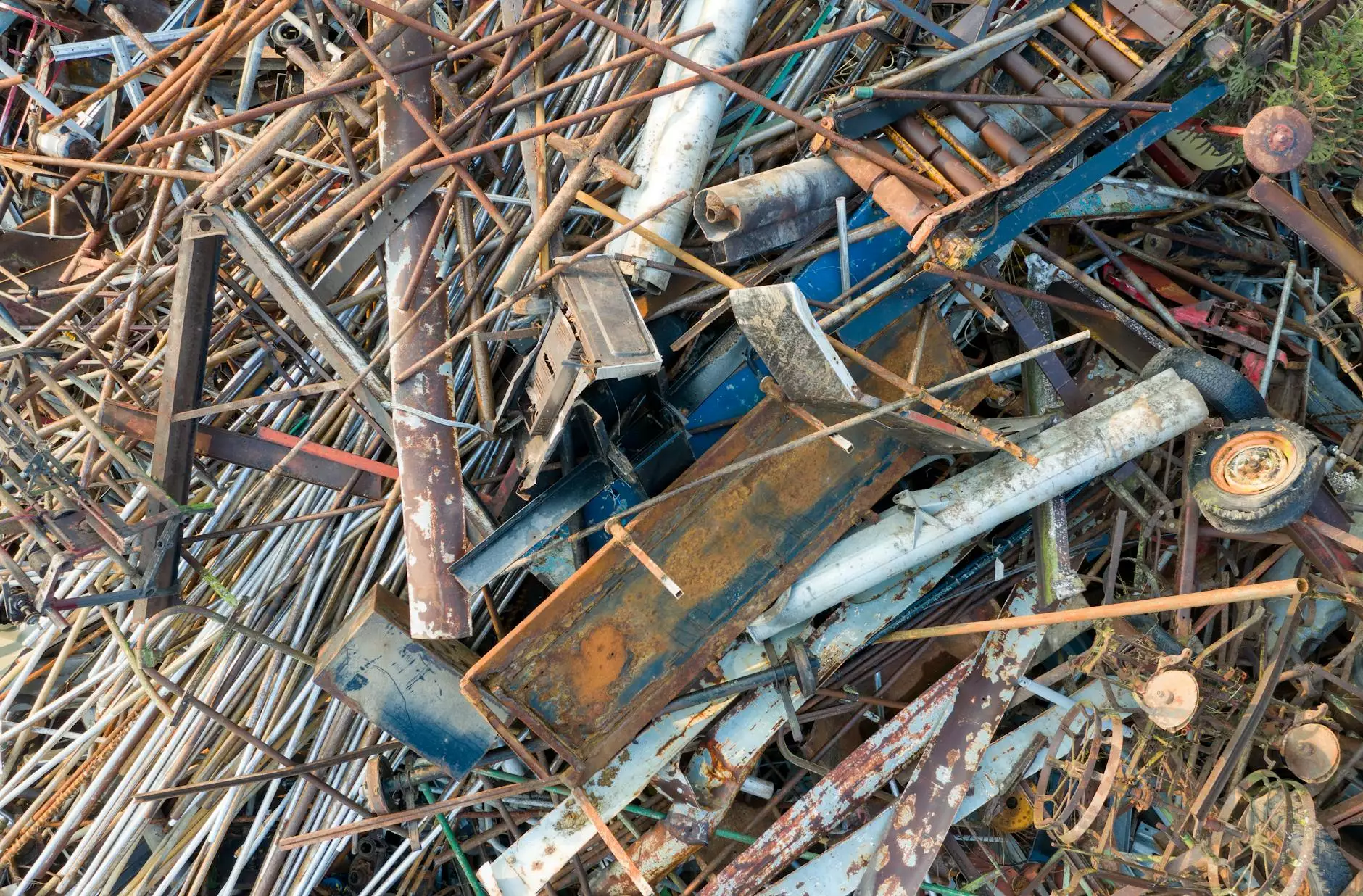Industrial Scrap Buyers: Unlocking Value in Scrap Trading

In today's ever-evolving industrial landscape, businesses are increasingly recognizing the vital role of industrial scrap buyers in promoting sustainability and cost efficiency. The concept of scrap trading has gained significant traction, and understanding the dynamics of the industry is crucial for optimizing operational costs, managing waste effectively, and contributing to environmental preservation.
The Importance of Industrial Scrap Buyers in Modern Industry
As industries continue to expand, the volume of scrap generated has also seen a substantial increase. This is where industrial scrap buyers come into play — acting as intermediaries who facilitate the sale of scrap materials from businesses to recyclers. These buyers are pivotal in ensuring that valuable materials do not end up in landfills, thus supporting a circular economy.
Understanding the Role of Industrial Scrap Buyers
Industrial scrap buyers perform various essential functions, including:
- Material Evaluation: They assess and evaluate scrap materials, determining their quality and market value.
- Logistics Coordination: They manage the logistics of scrap collection and transportation to ensure timely processing.
- Market Knowledge: They possess comprehensive knowledge of current market trends, which helps businesses maximize their return on scrap sales.
- Regulatory Compliance: They ensure that all transactions comply with local and federal regulations regarding waste management and recycling.
Types of Materials Handled by Industrial Scrap Buyers
Industrial scrap buyers are equipped to handle a wide range of materials, including:
- Metals: This includes ferrous metals like steel and iron, as well as non-ferrous metals like copper, aluminum, and brass.
- Plastics: Many buyers are now focusing on plastic scrap due to the increasing awareness of plastic pollution.
- Papers and Cardboards: These materials are commonly recycled, making them highly sought after by industrial scrap buyers.
- Electronics: E-waste recycling is an emerging field where specialized buyers focus on recovering precious metals and components.
Benefits of Working with Industrial Scrap Buyers
Engaging with industrial scrap buyers offers numerous advantages for businesses, including:
- Cost Reduction: By selling scrap, businesses can offset some operational costs, turning waste into profit.
- Boosting Sustainability: Partnering with scrap buyers enhances a company's sustainability credentials, crucial for modern consumers.
- Expertise and Resources: Scrap buyers have the expertise to manage scrap efficiently, saving businesses time and resources.
- Increased Efficiency: Streamlined scrap processing can lead to a more efficient waste management system.
How to Choose the Right Industrial Scrap Buyer
Selecting a suitable industrial scrap buyer is crucial for maximizing your returns and ensuring seamless operations. Here are key considerations:
Experience and Reputation
Choose buyers who have a solid track record and positive reviews in the industry. Reputation matters, as established buyers have reliable networks and operational expertise.
Market Pricing
Understand how they price scrap materials. A good industrial scrap buyer will offer competitive rates based on current market conditions. It might be beneficial to get quotes from multiple buyers to understand the fair value of your scrap.
Services Offered
Some scrap buyers offer additional services that can benefit your business, such as:
- On-site Pickup: Convenience is essential; look for buyers who provide collection services.
- Full Transparency: Ensure they are transparent about their pricing structure and fee schedules.
- Environmental Practices: Those committed to sustainable practices should be prioritized, as they align with eco-friendly values.
The Process of Selling Scrap to Industrial Scrap Buyers
Understanding the selling process can help streamline operations and minimize delays.
1. Initial Consultation
Contact a few industrial scrap buyers to discuss the types of materials available for sale, volume, and other relevant details.
2. Material Assessment
Once a potential buyer is selected, they will assess the scrap material to provide an accurate valuation. This could involve inspecting the material on-site or requiring samples.
3. Quotation
After evaluating the materials, the buyer will provide a quotation based on current market prices. Businesses should review and negotiate if necessary.
4. Agreement and Pickup
Upon agreeing to terms, arrangements for the collection of materials will be made. Efficient logistics can help minimize downtime.
5. Payment Process
Once the scrap is collected, payment methods and timelines should be reviewed to ensure timely compensation for the materials sold.
Challenges Faced by Industrial Scrap Buyers
While the business of industrial scrap buying is promising, it does come with challenges, such as:
- Volatility in Market Prices: The scrap metal market can be unpredictable, affecting pricing strategies.
- Logistical Issues: Managing the logistics of pickup and processing can be labor-intensive and costly.
- Regulatory Compliance: Compliance with the complex regulations surrounding waste and scrap management is crucial but can be challenging.
Future Trends in Industrial Scrap Buying
As we look ahead, several trends could impact the landscape of industrial scrap buyers:
- Technological Advancements: Technology will continue to enhance sorting and processing efficiency, making recycling more accessible and effective.
- Increased Demand for Recycling: As environmental concerns rise, so will the demand for recycling services, benefiting scrap buyers.
- Integration of Circular Economy Principles: Companies will increasingly adopt circular economy practices, promoting long-term partnerships with scrap buyers.
Conclusion
In conclusion, industrial scrap buyers play a vital role in the sustainability of industrial operations. By facilitating the recycling of scrap materials, they not only help businesses improve their bottom line but also contribute to a greener planet. As industries continue to evolve, embracing the expertise and resources offered by scrap buyers will be paramount in realizing the full potential of scrap trading.
For businesses looking for reliable partners in the scrap trading arena, Scrap Trading Center is at the forefront, offering professional services tailored to meet the diverse needs of industrial clients. With our commitment to efficiency, transparency, and sustainability, we pave the way for a better recycling future.





